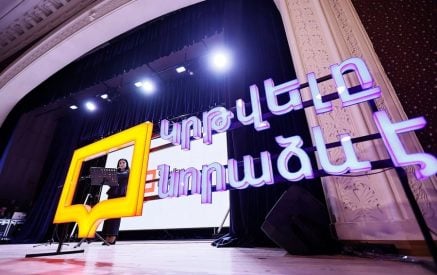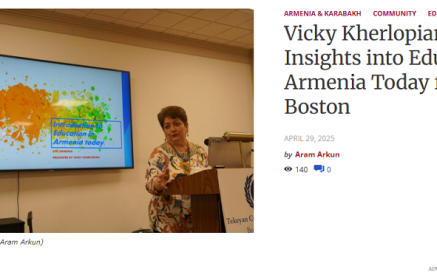Of course, everyone agrees that today’s education system needs radical changes. Understandably, this applies not only to Armenia but to the whole world. What the government of our country proposes (an “academic city”) is just a flight of imagination of the provincial brain.
It is very similar to the “cargo cult” when the Melanesian islanders during the Second World War, who had never seen foreigners before, saw airplanes flying in the sky and dropping goodies from there, and when they left, they decided to make themselves “airplanes” out of trees and pray for something to fall from the sky. New buildings will not improve the quality of education if such a problem exists, and the real reason for this is not simply to sell the old buildings.
Education is improved not by new buildings but by new networks, connections, and, broadly speaking, new culture. What education served in the so-called industrial era is no longer meaningful: the structure of the economy, the demands of employers and society have changed significantly. In the coming decades, there will be no need for “rank and file craftsmen,” from drivers and programmers to journalists. To give an example from the last field, record this or that politician, write down what he said, and turn to another figure to “counterattack” – which will do it better: the journalist or the program?
And why is there a need, a deficit now? My answer may sound lofty: to non-standard thinking and guided by high ethical standards people.
Read also
That is why an entirely new network is needed, where the concepts of “teacher,” “lecturer,” “student,” and “pupil” will be redefined. These functions should be performed not by people “appointed” but theoretically by everyone interested in this or that question and who is satisfied and happy to get knowledge. A 15-year-old can be my teacher in using modern “devices.” I can be his teacher if he is interested in 19th-century Russian literature.
In that case, the concepts of “grades,” “diplomas,” “scientific degrees,” and “admission exams” should also be revised. Of course, specialists should create a system, but that system’s goals and results should change significantly.
Telling a lesson for 45 minutes to those who, in the end, do not need it and it is not attractive, and then asking a class for 45 minutes, when the students’ answers also bore everyone, all of that has lost its meaning. It would be useless even in buildings with state-of-the-art furnishing.
Aram ABRAHAMYAN





















































